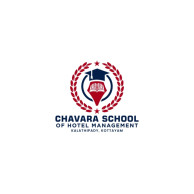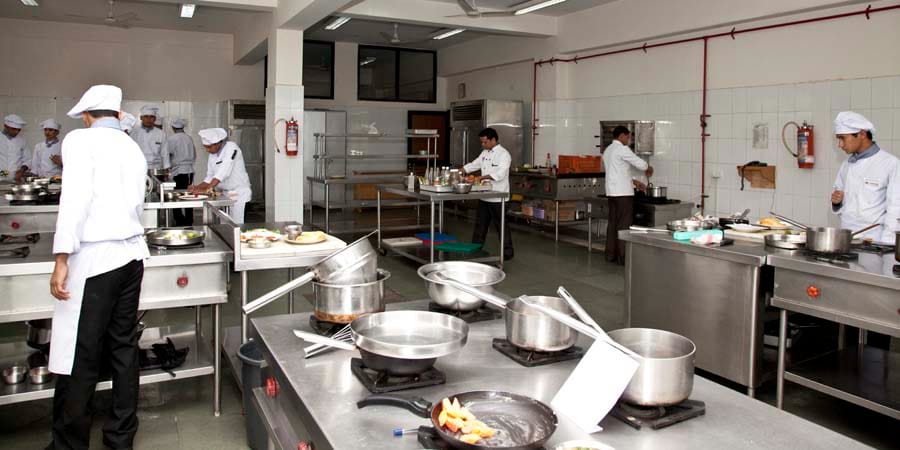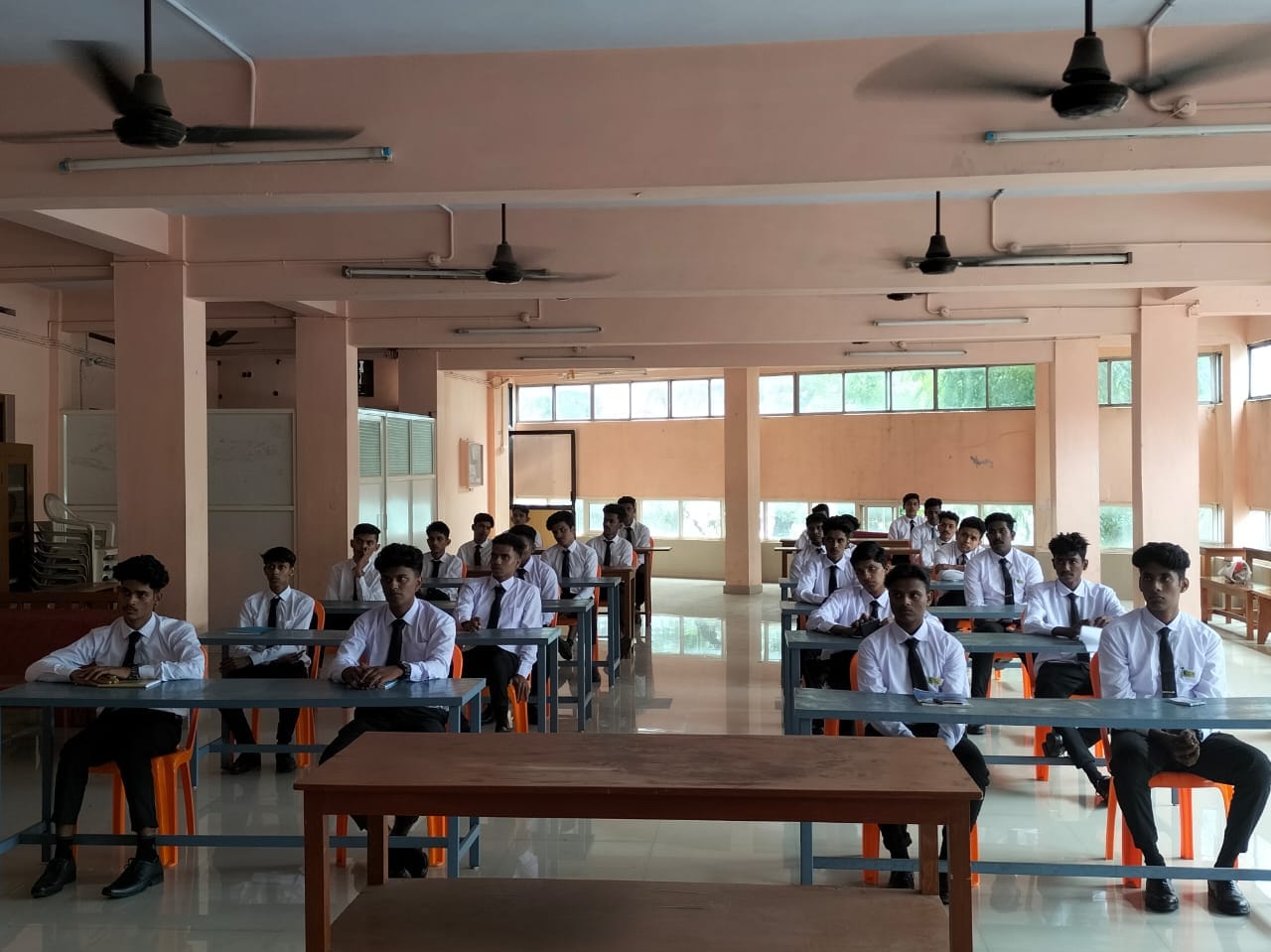Top 10 BSc Hotel Management in Kottayam
BSc Hotel Management is an undergraduate program that provides comprehensive education in hospitality management, preparing students for diverse careers in the hospitality industry. In Kottayam, this program offers specialized training and practical experience in hotel operations, culinary arts, and hospitality management.
-
Manipal University, School of Hotel Management
- Address: Manipal University, Manipal P.O., Kottayam, Kerala 686560
-
St. Joseph's College of Engineering and Technology (SJCET)
- Address: Choondacherry P.O., Palai, Kottayam, Kerala 686579
-
MES College of Engineering and Technology
- Address: Kunnukara P.O., Marampally, Aluva, Kottayam, Kerala 683105
-
Holy Grace Academy of Engineering
- Address: Mala, Kurumassery P.O., Kottayam, Kerala 683105
-
De Paul Institute of Science and Technology (DIST)
- Address: De Paul Nagar, Angamaly South P.O., Kottayam, Kerala 683573
-
Alphonsa College of Hotel Management Studies
- Address: Alphonsa College P.O., Kottayam, Kerala 686605
-
Sree Narayana Institute of Technology (SNIT)
- Address: Chathannoor, Karunagappally, Kottayam, Kerala 691571
-
Bishop Speechly College for Advanced Studies
- Address: Pallom P.O., Kottayam, Kerala 686012
-
Pinnacle School of Hotel Management
- Address: Nalanchira, Trivandrum, Kottayam, Kerala 695015
-
Vimal Jyothi Institute of Management and Research
- Address: Chemperi P.O., Kannur District, Kottayam, Kerala 670632
Career hotel management. in Kottayam
Hotel management encompasses roles in managing hotels, resorts, restaurants, and other hospitality establishments. It involves overseeing daily operations, ensuring guest satisfaction, managing staff, and maximizing revenue.
Educational Pathway
1. Education Requirements:
2. Key Skills and Qualities:
-
Communication: Strong interpersonal and communication skills to interact effectively with guests and staff.
-
Leadership: Ability to lead teams, manage resources, and make strategic decisions.
-
Customer Service: Focus on providing exceptional customer service and resolving issues promptly.
-
Organizational Skills: Ability to multitask, prioritize, and manage time effectively in a fast-paced environment.
-
Business Acumen: Understanding of financial management, revenue generation, and budgeting.
-
Problem-Solving: Capability to handle challenges and find solutions under pressure.
Career Paths in Hotel Management
1. Front Office Management:
-
Role: Managing guest check-in/out, reservations, and handling guest inquiries and concerns.
-
Skills Needed: Strong customer service, organizational skills, and knowledge of hotel operations software.
2. Food and Beverage Management:
-
Role: Overseeing dining operations, including restaurants, bars, banquets, and room service.
-
Skills Needed: Culinary knowledge, menu planning, inventory management, and food safety regulations.
3. Rooms Division Management:
-
Role: Supervising housekeeping, laundry, and maintenance operations to maintain cleanliness and functionality of guest rooms.
-
Skills Needed: Attention to detail, organizational skills, and knowledge of housekeeping standards.
4. Sales and Marketing:
-
Role: Promoting the hotel’s services, attracting guests through advertising, promotions, and partnerships.
-
Skills Needed: Marketing strategies, customer relationship management, and sales techniques.
5. Revenue Management:
-
Role: Optimizing room rates and occupancy to maximize revenue and profitability.
-
Skills Needed: Analytical skills, understanding of market trends, and revenue management software.
Career Advancement and Development
1. Professional Certifications:
-
Certified Hotel Administrator (CHA): Recognized certification for senior hotel executives.
-
Certified Hospitality Supervisor (CHS): Entry-level certification demonstrating competency in hospitality supervision.
2. Industry Experience:
3. Networking and Professional Associations:
Numerous subjects are addressed in the hotel management program in Kottayam
Subjects in Hotel Management Programs
1. Introduction to Hospitality Management
- Overview of the hospitality industry, its scope, evolution, and career opportunities.
2. Hotel Operations Management
- Principles and practices of managing hotel operations, including front office, housekeeping, food and beverage, and maintenance.
3. Food and Beverage Management
- Operations and management of restaurant, bar, banquet, and room service operations.
- Menu planning, food safety standards, and beverage management.
4. Rooms Division Management
- Housekeeping operations, managing guest rooms, laundry services, and maintenance.
- Ensuring cleanliness, comfort, and functionality of guest accommodations.
5. Hospitality Financial Management
- Accounting principles, budgeting, cost control, and financial analysis specific to hospitality operations.
- Revenue management and forecasting.
6. Hospitality Marketing and Sales
- Marketing strategies tailored to hospitality industry, including digital marketing, branding, and promotions.
- Sales techniques, customer relationship management, and revenue generation.
7. Human Resource Management in Hospitality
- Recruitment, training, and management of hospitality staff.
- Employee relations, labor laws, and organizational behavior.
8. Event Management
- Planning, organizing, and executing events within hospitality settings.
- Event logistics, guest coordination, and catering management.
9. Hospitality Law and Ethics
- Legal aspects affecting hospitality operations, including contracts, liability, and regulatory compliance.
- Ethical considerations in hospitality management.
10. Strategic Management in Hospitality
- Strategic planning, decision-making, and leadership in hospitality organizations.
- Industry trends, competitive analysis, and sustainability practices.
11. Cultural and Global Issues in Hospitality
- Understanding cultural diversity, global hospitality trends, and international business practices.
- Cross-cultural communication and adapting services to diverse clientele.
How To Select Institutes For Hotel Management in Kottayam
1. Accreditation and Recognition
Ensure that the institute is accredited by relevant bodies or associations in the hospitality or education sector. Accreditation ensures that the institute meets certain standards of quality and education.
2. Curriculum and Specializations
Review the curriculum offered by the institute. Look for programs that cover a wide range of subjects relevant to hotel management, including both theoretical knowledge and practical training. Specializations or elective courses in areas of interest (such as event management, culinary arts, or international hospitality) can also be beneficial.
3. Faculty and Industry Experience
Research the qualifications and industry experience of the faculty members. Experienced instructors who have worked in the hospitality industry bring valuable insights and practical knowledge to the classroom.
4. Facilities and Resources
Visit the institute or explore its virtual tour to assess the facilities available. This includes classrooms, kitchens (if culinary arts is part of the program), accommodation for practical training, libraries, computer labs, and any specialized facilities like mock hotel rooms or event spaces.
5. Practical Training and Internship Opportunities
Look for programs that offer robust practical training and internship opportunities. Hands-on experience in real-world hospitality settings is essential for applying theoretical knowledge, developing skills, and building industry contacts.
6. Alumni Network and Industry Connections
Consider the institute’s alumni network and its connections with the hospitality industry. A strong alumni network can provide valuable support, mentorship, and job placement opportunities after graduation.
7. Placement Record and Career Services
Research the institute’s placement record and career services. Look for statistics on how many graduates secure jobs in the hospitality industry soon after completing their programs. Career services that offer resume assistance, interview preparation, and industry networking events can also be advantageous.
8. Location and Industry Exposure
The location of the institute can influence your exposure to the hospitality industry. Institutes located in or near major tourist destinations or hospitality hubs may offer better opportunities for internships, networking, and job placements.
9. Reputation and Reviews
Check online reviews, testimonials from current and past students, and rankings (if available) to gauge the institute’s reputation. Speak with current students or alumni if possible to get firsthand insights into their experiences.
10. Cost and Financial Aid
Consider the cost of tuition, fees, accommodation, and other expenses associated with attending the institute. Evaluate whether the institute offers financial aid, scholarships, or flexible payment options to help manage costs.
Frequently Asked Questions about Hotel Management in Kottayam
What is Hotel Management?
Hotel management involves overseeing the operations of hospitality establishments such as hotels, resorts, restaurants, and event venues. It includes managing guest services, accommodation, food and beverage operations, housekeeping, and overall guest satisfaction.
What qualifications do I need to pursue a career in Hotel Management?
Typically, a bachelor’s degree in hotel management, hospitality management, or a related field is required for entry-level positions in hotel management. Some roles may also require practical experience gained through internships or part-time work.
What skills are important for a career in Hotel Management?
Key skills for hotel management include:
- Communication: Ability to communicate effectively with guests and staff.
- Customer Service: Focus on providing exceptional service and resolving issues.
- Leadership: Ability to lead teams and manage operations efficiently.
- Problem-Solving: Capacity to handle challenges and find solutions.
- Organizational Skills: Manage multiple tasks and prioritize responsibilities.
- Business Acumen: Understand financial management and revenue optimization.
How can I gain practical experience in Hotel Management?
Practical experience can be gained through internships, part-time jobs, and practical training offered by hotel management programs. These opportunities provide hands-on experience in different departments of a hotel, including front office, housekeeping, food and beverage, and events management.
How important is accreditation when choosing a Hotel Management program?
Accreditation ensures that the hotel management program meets specific educational standards and prepares students for careers in the hospitality industry. It can enhance the credibility of your degree and may be required by employers or for further education.




